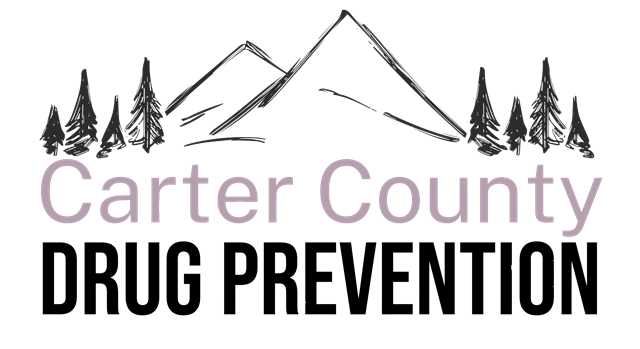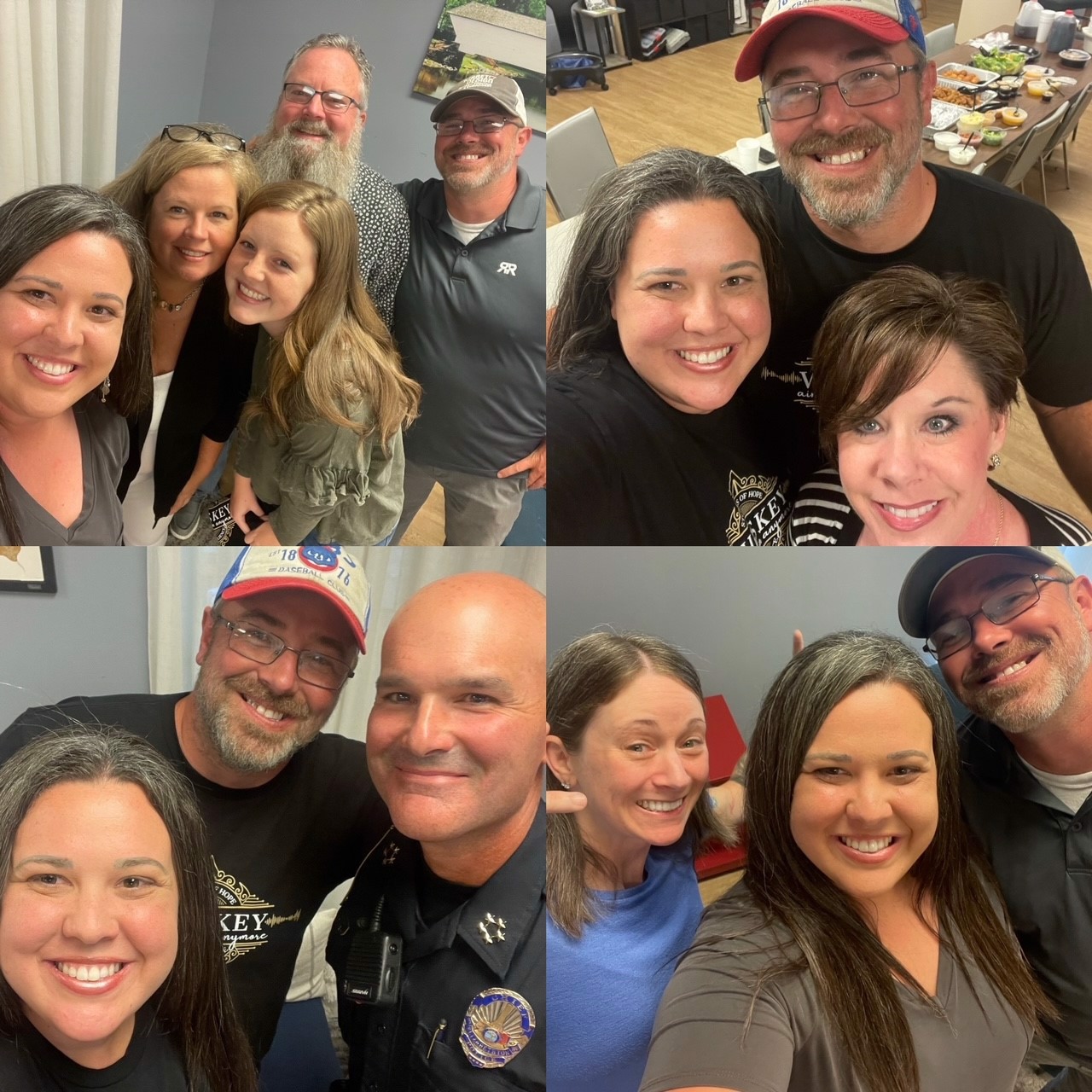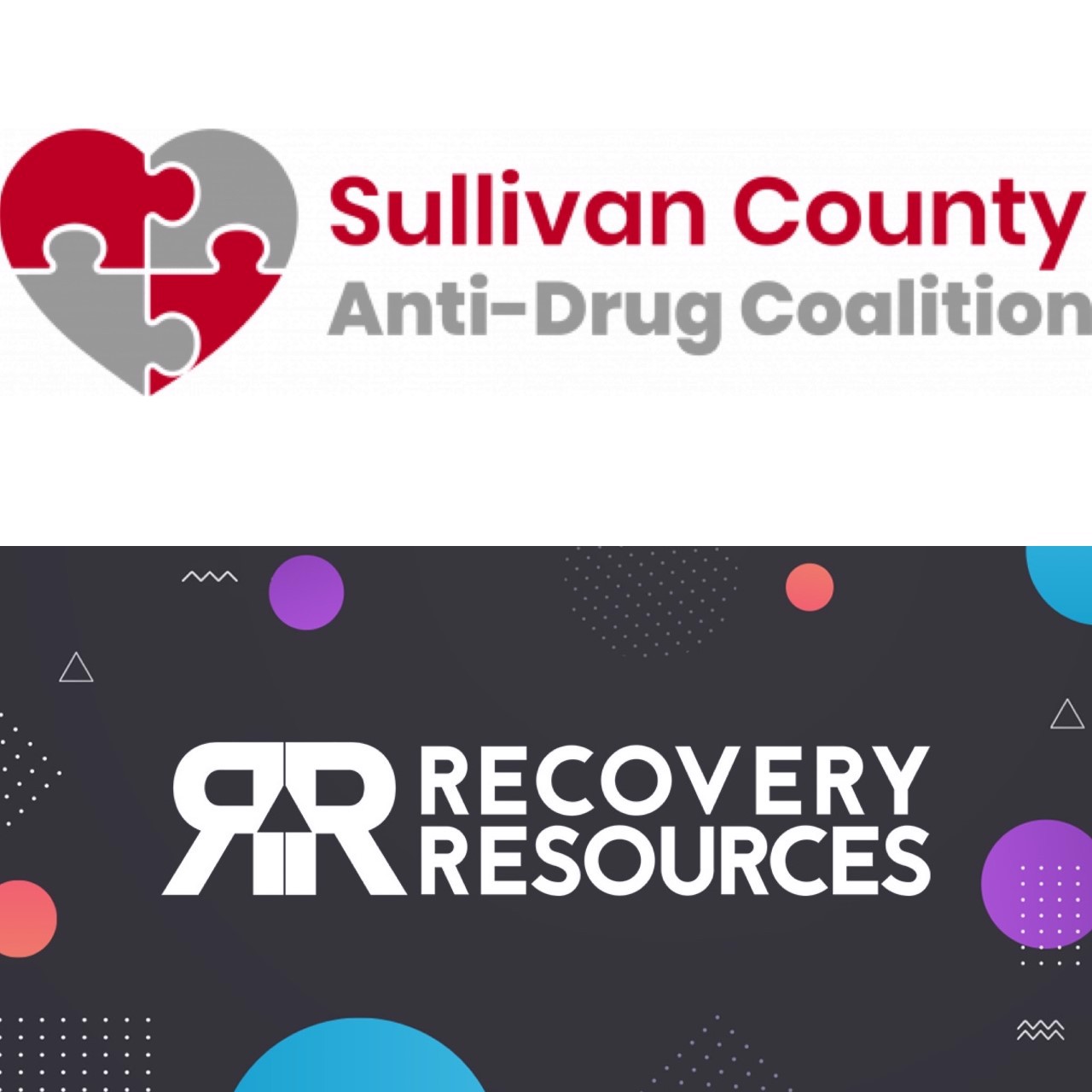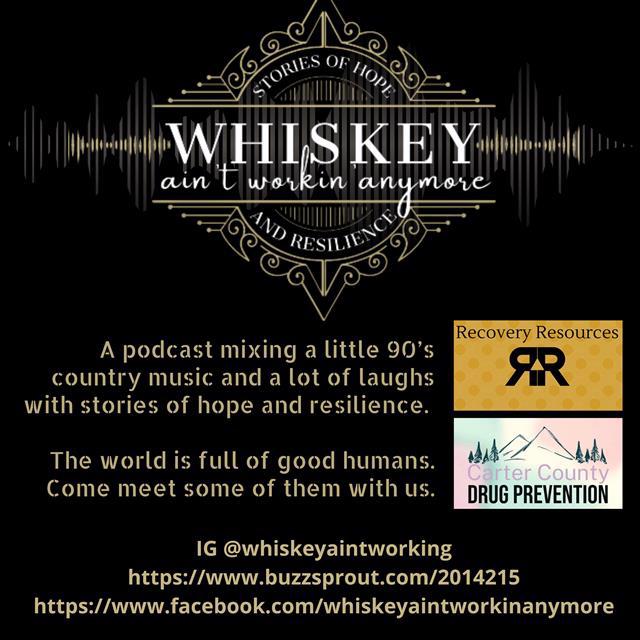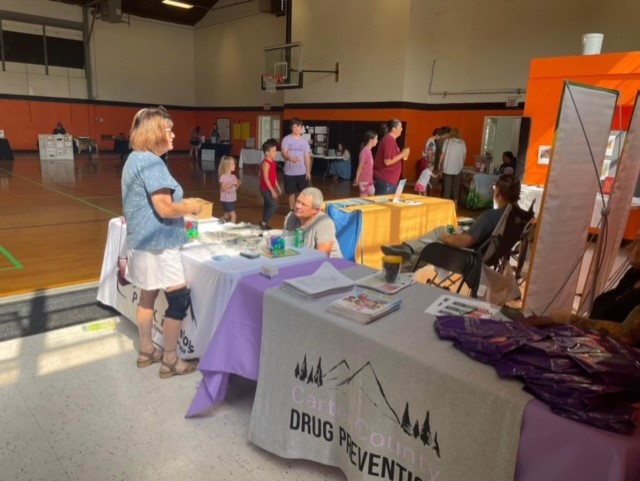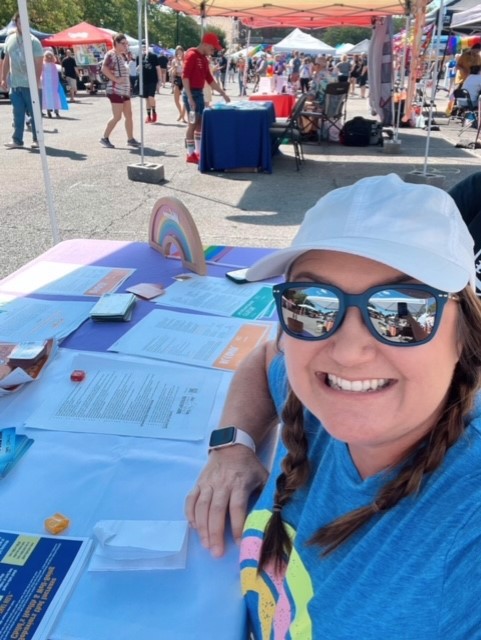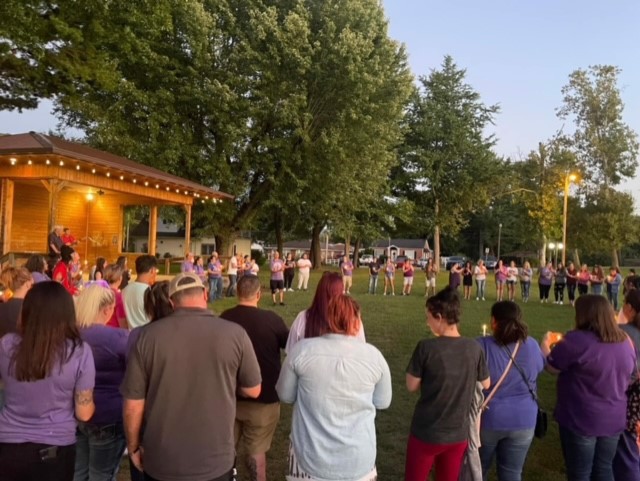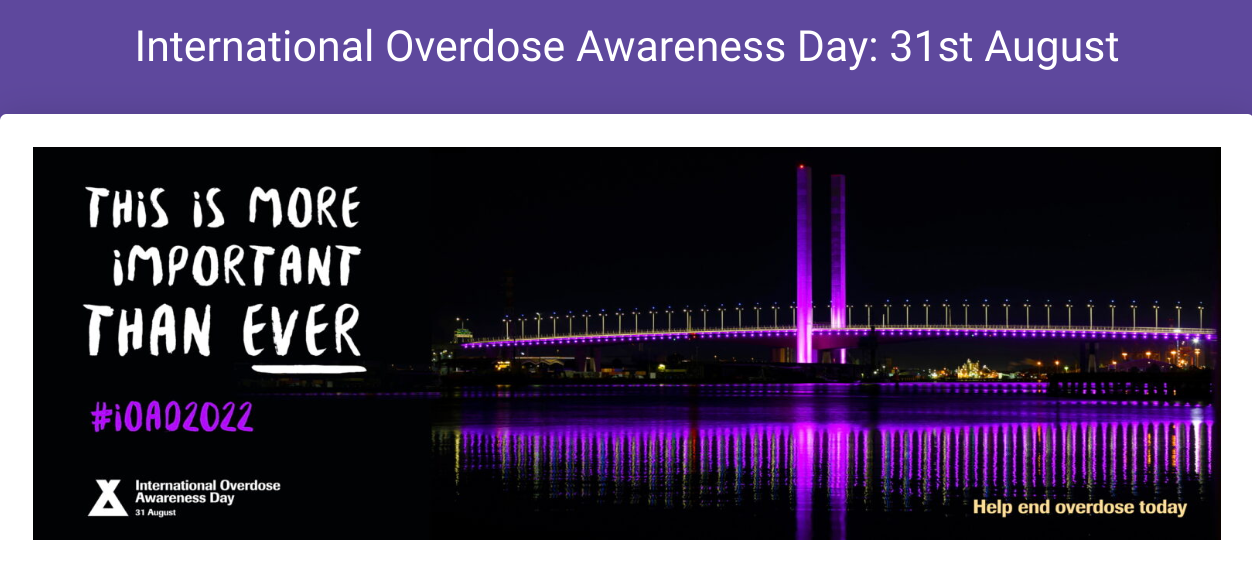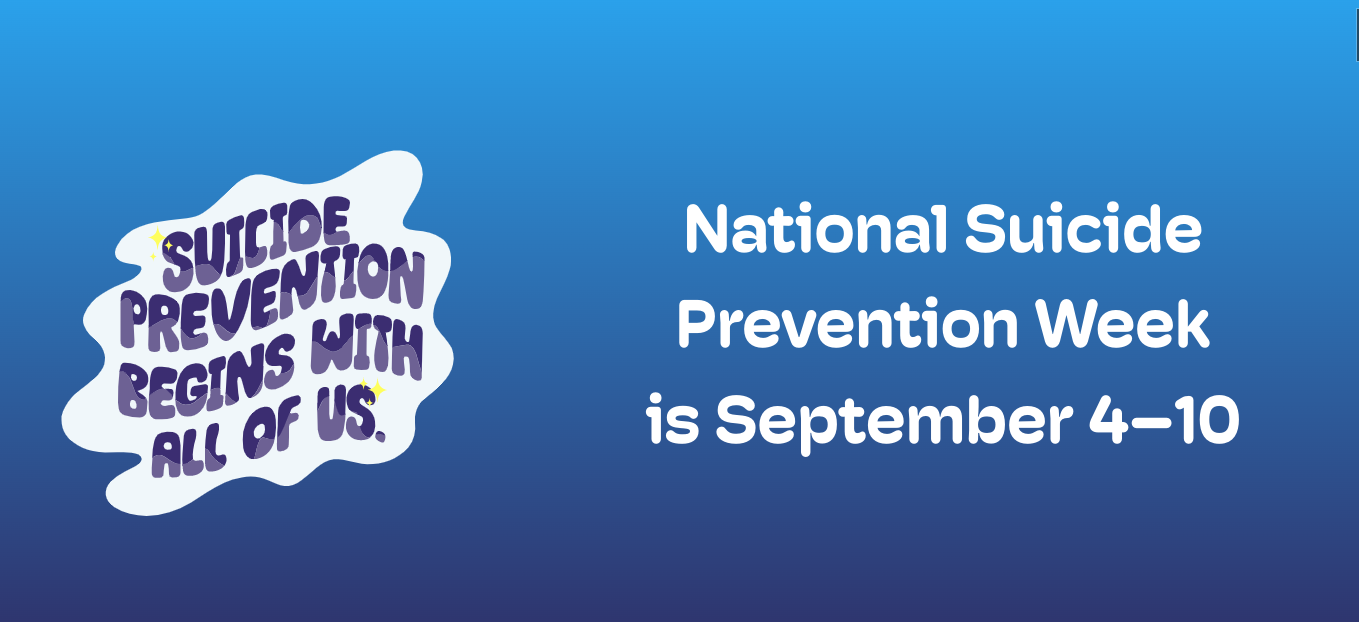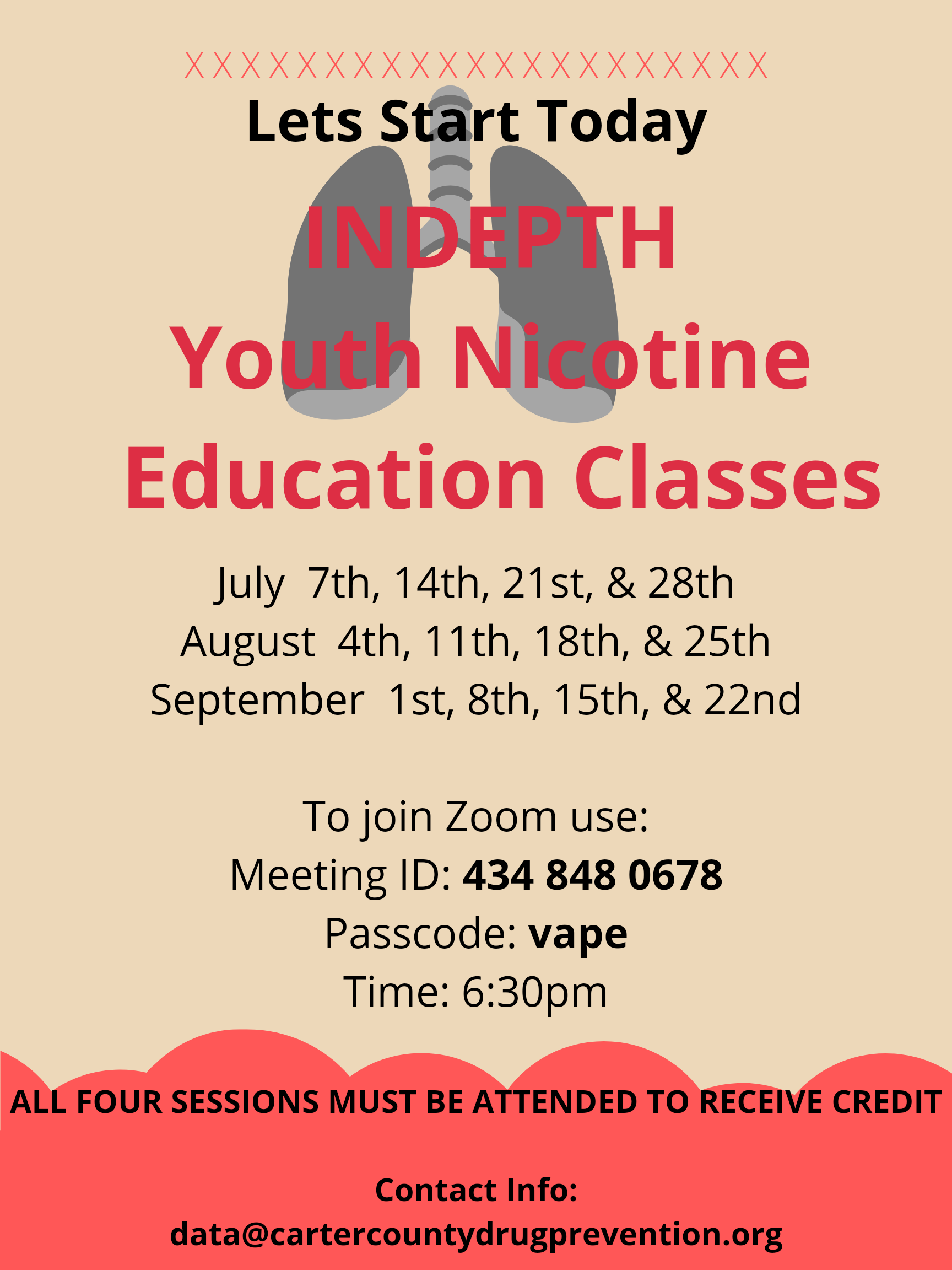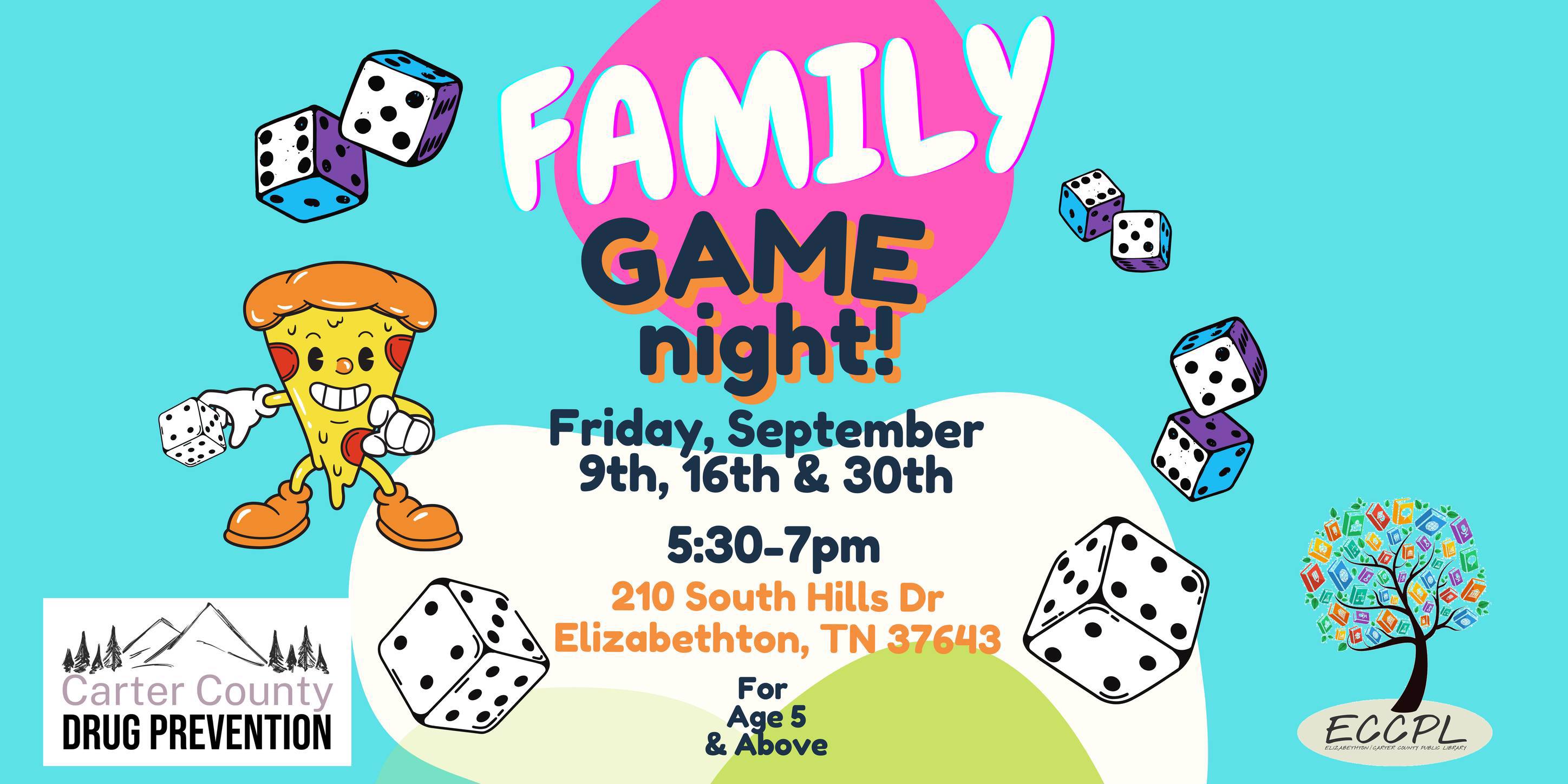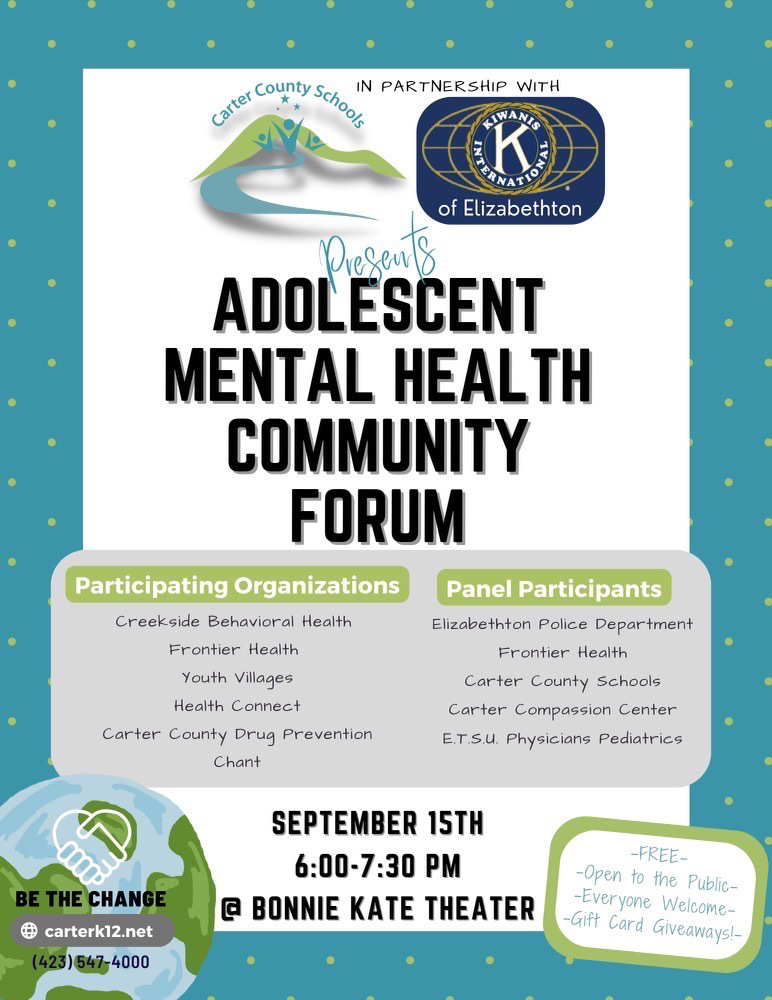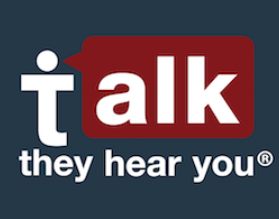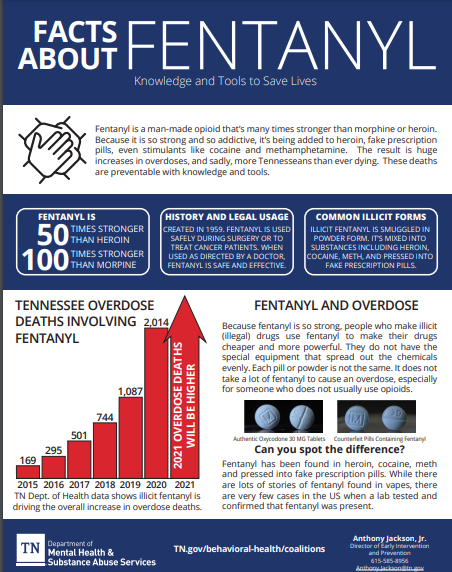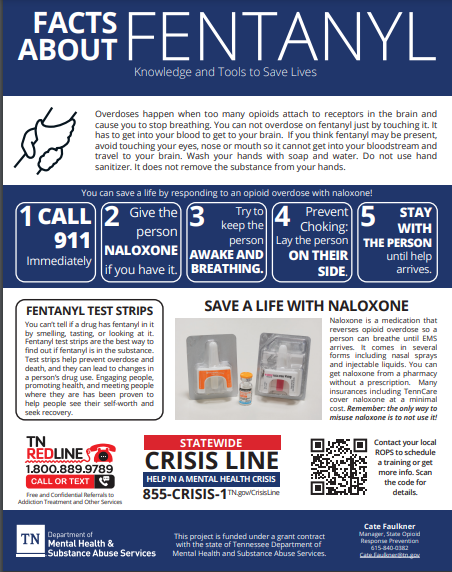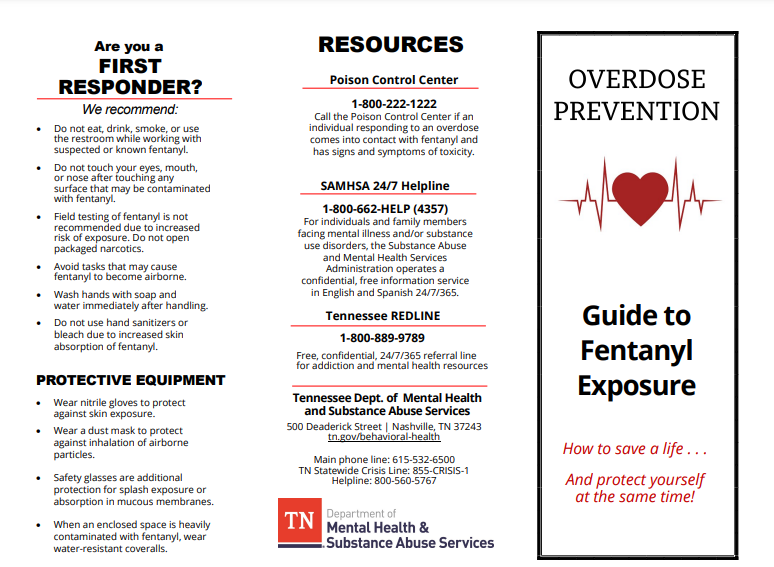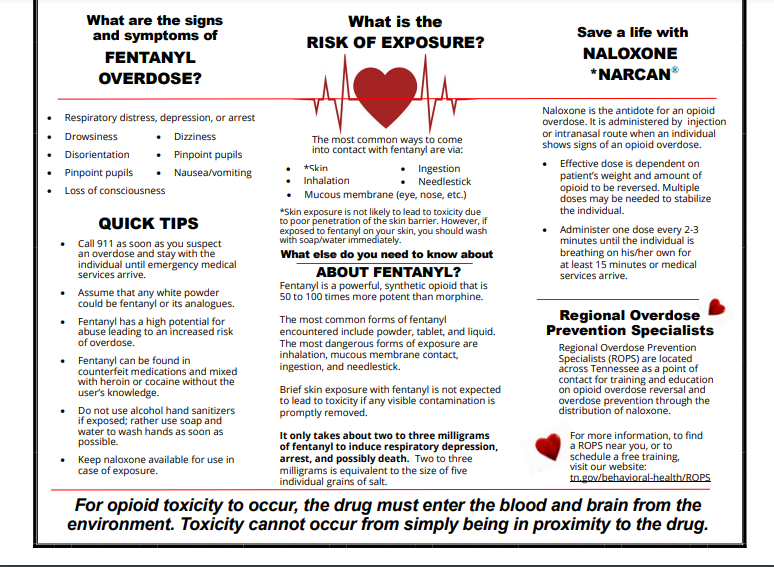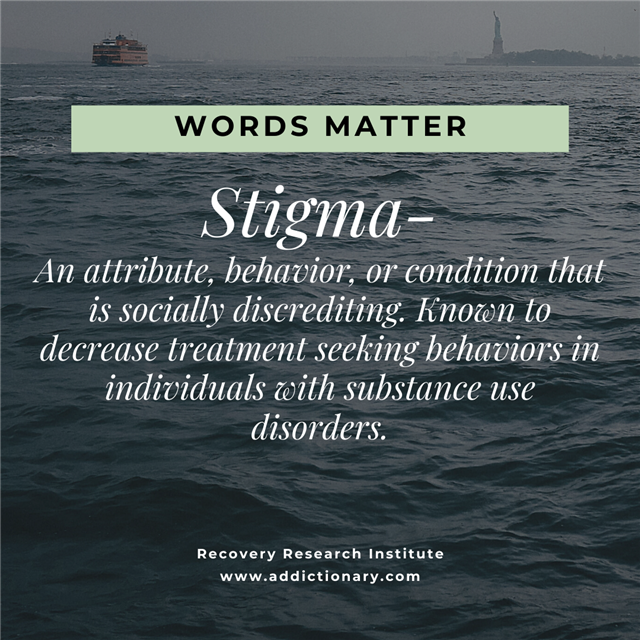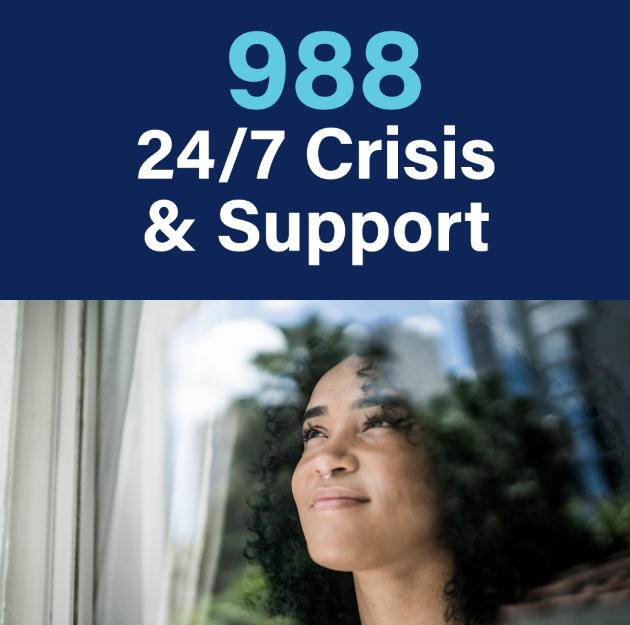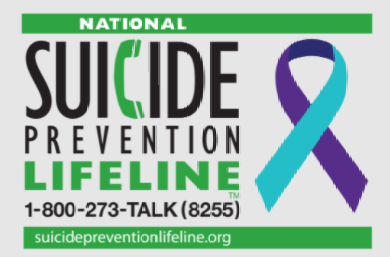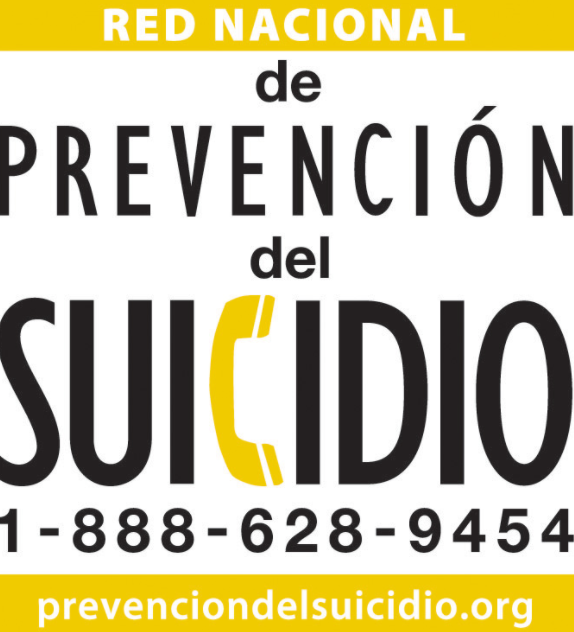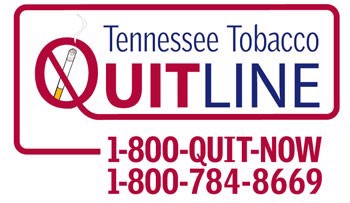September 2022
CARTER COUNTY CONNECTS |
|
|
|
|
|
September Outstanding Coalition Member:
Craig Forrester
Craig shared:
Why is Carter County Drug Prevention important to you and/or our community?
They do the best job of any organization I know of working with youth to help the next generation live meaningful and drug free lives. Their staff believes in their mission and it shows. Jilian has a way of loving on everyone she comes in contact with that leaves them feeling important and heard.
What is your favorite memory, moment, event or partnership with Carter County Drug Prevention?
The Whiskey Ain't Workin Anymore podcast!
We LOVE Craig and his organizations for all of the amazing things they do in the region! Make sure you listen to Craig and Jilian every Friday and visit the Recovery Resources and Sullivan County Anti-Drug Coalition websites above!
|
|
|---|
|
Our Outstanding coalition partner for the month of September is TSPN (Tennessee Suicide Prevention Network). September is National Suicide Prevention Month. Representatives from TSPN work tirelessly to prevent and educate individuals on suicide to save lives across the state of Tennessee and are always willing to help CCDP
|
|
|
|
|
 |
Hello coalition members,
Thanks for all you do to help us make Carter County a healthier place to live! During the past month we were able to re-start our INDEPTH classes for Elizabethton City Schools students who were cited for vaping. We are grateful to the schools for allowing us to provide these classes and are hopeful that they will make a great impact on students in our community.
August 2022 highlights include:
- CCDP volunteer, Jason Stout graduated DRC! We could not be more proud of him and are so excited to see what his future holds!
- Our 2022 Homeschool Expo on August 2nd, was very successful. We were able to share resources with homeschool parents who may not have substance use and/or mental health resources provided in other ways.
- We hosted some great folks from the National Recreation and Parks Association for a site visit this month and were able to take them out on Watauga Lake to show off our beautiful county.
- We had a great day at theTri-Pride Festival and were able to share lots of resources with some members of the LGBTQIA+ community.
- Overdose Awareness Day was a success with the help of many community partners and organizations. We had a great turnout for a very impactful event.
Check out pictures of these events below!
Thanks for supporting CCDP. We could not make any of the impacts we do without YOU!
|
|
|---|
|
|
International Overdose Awareness Day is a day of remembrance dedicated to honoring the lives of individuals lost to overdose and acknowledges the grief that families and friends are left with as a result of overdose.
This year Carter County Drug Prevention hosted an International Overdose Awareness Day event and candlelight vigil at the Covered Bridge on August 31st, 2022 from 7:00-8:30.
The event offered music, resources, messages of resilience, stories shared from loved ones, community art project, and a memorial that provides space for families and friends of those lost to overdose and members of the community to leave messages of remembrance, support for those carrying grief, and hope for those still trapped in addiction. Attendees were encouraged to wear purple for overdose awareness. |
|
|---|
|
|
October CCC Meeting
October 6th
Virtual: Join Zoom @ 12pm
Meeting will end @ 1:30pm
Things to do before the meeting:
- Please make sure you have filled out this membership form.
- Please use this form to share any upcoming events or activities you would like the collaborative members to know about.
- Committee chairs, please use this form to submit committee progress.
Speakers:
Caroline Rodriguez, TN Voices
ETSU Behavioral Health Clinic
Committees will meet in breakout rooms following the speaker.
|
|
|---|
|
|
 |
August 2022 Arrest Data
*Data Provided by Carter County Sheriff's Department & Elizabethton Police Department through https://carter-911-tn.zuercherportal.com/#/inmates.
Ages
12-21 - 0
22-30 - 0
31-40 - 7
41-50 - 2
51-60 - 1
61-70 - 1
71 and up - 0
Unknown ages - 0
Gender
Male - 5
Female - 7
Violations
DUI - 1
Public Intoxication - 4
Underage Consumption - 0
Sale to Minors or Intoxicated Persons- 0
Drug Paraphernalia - 2
Violation of Implied Conscent Law - 0
Manufacture, Delivery, Sale or Possession of Methamphetamine - 5
Maintaining a Dwelling - 0
Introduction of Contraband into a Penal Institution - 0
Possession of Legend Drug without a Prescription - 1
Simple Possession/Casual Exchange - 0
Falsification of Drug Test - 1
Open Conainer - 0
Contributing to the Deliquency of a Minor - 0
Schedule I - 1
Schedule II - 4
Schedule III - 1
Schedule IV - 3
Schedule V - 0
Schedule VI - 1
9-1-1 Calls For Service
DUI - 5
Possible Drugs - 6
Overdose/Poisoning - 3
Public Intoxication - 4
Suicide/Attempt/Threat - 7
Psychiatric/ Abnormal Behavior/ Suicide Attempt - 2 |
|
|
|
|
Tennessee State Unintentional Drug Overdose Reporting System (SUDORS) Report 2022
|
|
|---|
|
|
The American Lung Association's (INDEPTH) Intervention for Nicotine Dependence: Education, Prevention, Tobacco and Health provides education on tobacco/vaping through 4 sessions to include information on General tobacco /vape info, quitting, Adverse Childhood Experiences, alternatives to use, and
Drug- free Future.
Teen tobacco use has long been linked to lifelong dependency, with 9 out of 10 cigarette users claiming they picked up their first cigarette before the age of 18. The introduction of e-cigarettes has amplified the problem: Over the course of just one year, vaping's popularity grew from 2.1 million in 2017 to 3.6 million in 2018, prompting the U.S. Surgeon General to declare e-cigarette use among our youth an epidemic. Teens are getting hooked on tobacco and instead of getting education or support, they are getting suspended from school or other disciplinary measures. INDEPTH® is a new way to help.
|
|
|---|
|
|
SAMHSA’s national substance use prevention campaign helps parents and caregivers start talking with their children early about the dangers of alcohol and other drugs uses.
Check out other PSA's here.
|
|
|---|
|
|
 |
FOR IMMEDIATE RELEASE CONTACT: Matthew Parriott August 24, 2022 Cell: 615-943-3172
STATE DEPARTMENTS ISSUE GUIDANCE AROUND FENTANYL EXPOSURE Leaders stress facts over fear and focus on helping people find recovery
NASHVILLE, Tenn.—The Tennessee Department of Mental Health and Substance Abuse Services (TDMHSAS) and Department of Health today issued new guidance and information around fentanyl and what to do in case of a potential exposure.
Recent media reports have highlighted stories of exposure to a white powdery substance assumed to be fentanyl and the wide variety of adverse medical reactions that followed. While these stories are disturbing, it is important for everyone involved to separate fact from fiction when talking about fentanyl exposure to avoid unnecessary confusion and panic.
Illicit fentanyl cannot be absorbed through the skin or by touching an item or surface where it is present. When in powder form, fentanyl and its analogs (including carfentanil and fluorofentanyl) cannot be absorbed through the skin. Dissolving the powder in a liquid does not change this property. Wet objects do not pose an increased risk for an overdose caused by casual exposure.
“It’s so important to separate fact from fiction when it comes to fentanyl because Tennesseans are dying of overdose by the thousands. It is our hope that these facts will help people who are struggling with opioid use reach to treatment if they need it and find a new life in recovery,” said TDMHSAS Commissioner Marie Williams, LCSW.
“Overdoses are heart-wrenching, for those who live through them and for the family and friends of those who don’t,” said TDH Commissioner Dr. Morgan McDonald, MD FACP FAAP. “We are taking every opportunity to provide care and information to those dealing with addiction to prevent deaths and overdoses from fentanyl and opioids.”
What should you do if you believe you have been exposed to a substance that could be fentanyl?
- Do not touch your eyes, nose, or mouth.
- Wash your hands with soap and water to remove any substance from your hands. • If you begin to experience any adverse medical symptoms, seek medical attention.
Symptoms of opioid/fentanyl overdose include pinpoint pupils, falling asleep or losing consciousness, slow and shallow breathing, choking or gurgling sounds, limp body, and pale, blue, or cold skin. If you suspect an overdose, call 911, and administer naloxone (Narcan) if available. Do not leave the person alone.
Symptoms such as alertness, rapid heartbeat, hyperventilating, sweating, chills, numbness in
TDHMSAS • Andrew Jackson Building, 6th Floor • 500 Deaderick Street • Nashville, TN, 37243 Tel: 615-532-6500 • tn.gov/behavioral-health
fingers are NOT typically associated with opioid/fentanyl overdoses, though they may need medical attention. These symptoms are more commonly associated with anxiety or a panic attack.
For a fentanyl overdose to occur, the powder must enter the bloodstream and get to the brain. This is why it is important to avoid touching your eyes, nose, or mouth until you can wash your hands. Fentanyl can also enter the bloodstream through cuts or wounds on the skin. Wounds must be open and visible to allow fentanyl to enter.
Prescription fentanyl transdermal patches dispensed by a licensed pharmacist are especially formulated to include other pharmaceutical ingredients designed to increase the permeability of the skin which allows a small amount of fentanyl to be absorbed very slowly. Full absorption of fentanyl through a patch takes 3-13 hours. Proper disposal of patches reduces the risk of ingestion by children and pets.
To learn more about fentanyl, overdose reversal, and how to save a life with naloxone, please reach out to the Regional Overdose Prevention Specialist who serves your area. Additionally, you can find recorded trainings and information about fentanyl on our website at this link: TN.gov/behavioral-health/fentanyl. If you or someone you love needs connection to addiction treatment services call or text the Tennessee REDLINE at 800-889-9789 for free and confidential referrals.
###
About the Department of Mental Health and Substance Abuse Services Our Mission: Creating collaborative pathways to resiliency, recovery, and independence for Tennesseans living with mental illness and substance use disorders.
Our Vision: A state of resiliency, recovery, and independence in which Tennesseans living with mental illness and substance use disorders thrive.
TDHMSAS • Andrew Jackson Building, 6th Floor • 500 Deade |
|
|---|
|
|
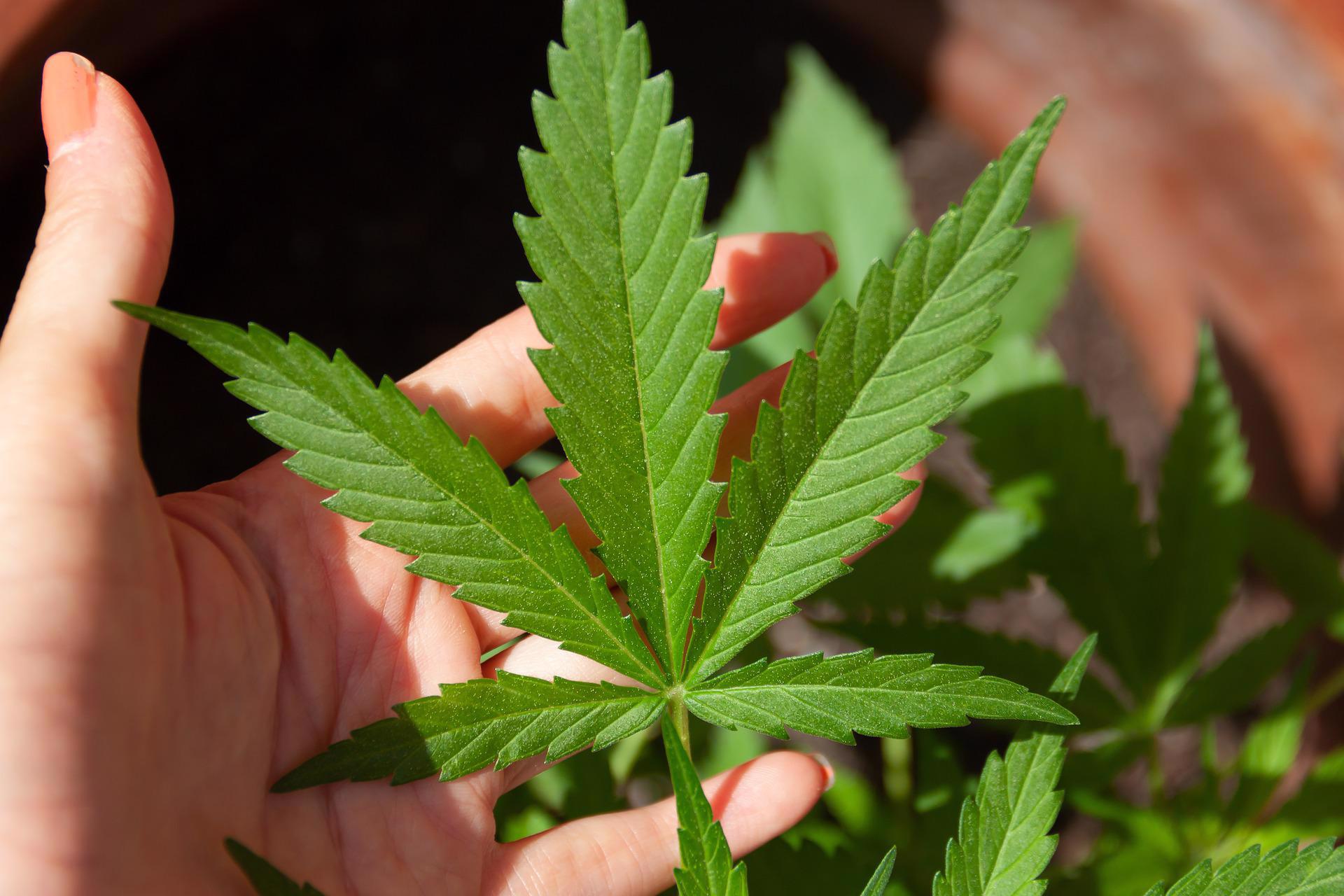 |
Marijuana and hallucinogen use among young adults reached all time-high in 2021
NIH-supported study also found past-month vaping levels rebound after early pandemic drop
Marijuana and hallucinogen use in the past year reported by young adults 19 to 30 years old increased significantly in 2021 compared to five and 10 years ago, reaching historic highs in this age group since 1988, according to the Monitoring the Future (MTF) panel study. Rates of past-month nicotine vaping, which have been gradually increasing in young adults for the past four years, also continued their general upward trend in 2021, despite leveling off in 2020. Past-month marijuana vaping, which had significantly decreased in 2020, rebounded to pre-pandemic levels in 2021.
Alcohol remains the most used substance among adults in the study, though past-year, past-month, and daily drinking have been decreasing over the past decade. Binge drinking (five or more drinks in a row in the past two weeks) rebounded in 2021 from a historic low in 2020, during the early stages of COVID-19 pandemic. On the other hand, high-intensity drinking (having 10 or more drinks in a row in the past two weeks) has been steadily increasing over the past decade and in 2021 reached its highest level ever recorded since first measured in 2005.
“As the drug landscape shifts over time, this data provides a window into the substances and patterns of use favored by young adults. We need to know more about how young adults are using drugs like marijuana and hallucinogens, and the health effects that result from consuming different potencies and forms of these substances,” said National Institute on Drug Abuse Director Nora Volkow, M.D. “Young adults are in a critical life stage and honing their ability to make informed choices. Understanding how substance use can impact the formative choices in young adulthood is critical to help position the new generations for success.”
Since 1975, the Monitoring the Future study has annually surveyed substance use behaviors and attitudes among a nationally representative sample of teens. A longitudinal panel study component of MTF conducts follow-up surveys on a subset of these participants to track their drug use through adulthood. Participants self-report their drug use behaviors across three primary time periods – lifetime, past year (12 months), and past month (30 days). The MTF study is conducted by scientists at the University of Michigan’s Institute for Social Research, Ann Arbor, and is funded by NIDA, part of the National Institutes of Health.
Data for the 2021 survey were collected online from April 2021 through October 2021. Key findings in the young adult group include:
Marijuana Use: Past-year, past-month, and daily marijuana use (use on 20 or more occasions in the past 30 days) reached the highest levels ever recorded since these trends were first monitored in 1988. The proportion of young adults who reported past-year marijuana use reached 43% in 2021, a significant increase from 34% five years ago (2016) and 29% 10 years ago (2011). Marijuana use in the past month was reported by 29% of young adults in 2021, compared to 21% in 2016 and 17% in 2011. Daily marijuana use also significantly increased during these time periods, reported by 11% of young adults in 2021, compared to 8% in 2016 and 6% in 2011.
Hallucinogen Use: Past-year hallucinogen use had been relatively stable over the past few decades until 2020, when reports of use started to increase dramatically. In 2021, 8% of young adults reported past-year hallucinogen use, representing an all-time high since the category was first surveyed in 1988. By comparison, in 2016, 5% of young adults reported past-year hallucinogen use, and in 2011, only 3% reported use. Types of hallucinogens reported by participants included LSD, MDMA, mescaline, peyote, “shrooms” or psilocybin, and PCP. The only hallucinogen measured that significantly decreased in use was MDMA (also called ecstasy or Molly), showing statistically significant decreases within one year as well as the past five years – from 5% in both 2016 and 2020 to 3% in 2021.
Vaping: Nicotine vaping in the past month increased significantly among young adults in 2021 despite leveling off in 2020 during the earlier part of the pandemic. The continued increase in 2021 reflects a general long-term upward trend: in 2021, nicotine vaping prevalence nearly tripled to 16% compared to 6% in 2017, when the behavior was first recorded.
Prevalence of marijuana vaping in the past month among young adults had significantly dipped in 2020 but returned to near pre-pandemic levels in 2021. Since 2017, when marijuana vaping was included in this study, past-month prevalence has doubled – from 6% in 2017 to 12% in 2021.
Alcohol Use: Reports of binge drinking by young adults – defined as having five or more drinks in a row in the past two weeks – returned to pre-pandemic levels in 2021 after significantly decreasing in 2020 (32% reported in 2021, versus 28% in 2020 and 32% in 2019). High-intensity drinking, defined as having 10 or more drinks in a row in the past two weeks, was at its highest level since it was first measured in 2005, reported by 13% of young adults in 2021, compared with 11% in 2005. However, past-month and past-year alcohol use, and daily drinking have been on a downward trend in young adults for the past 10 years. For example, in 2021, 66% of young adults reported alcohol use in the past 30 days, a significant decline from 70% recorded in 2016 and 69% in 2011.
The study also showed significant decreases in past-month cigarette smoking by young adults and non-medical use of opioid medications in the past year (surveyed as “narcotics other than heroin”) compared to 10 years ago. Both substances have been declining steadily in use for the past decade. Additional data from the 2021 MTF panel study include drug use reported by adults 35 to 50 years old, college/non-college young adults, and among various demographic subgroups.
“One of the best ways we can learn more about drug use and its impact on people is to observe which drugs are appearing, in which populations, for how long, and under which contexts,” said Megan Patrick, Ph.D., a research professor at the University of Michigan and principal investigator of the MTF panel study. “Monitoring the Future and similar large-scale surveys on a consistent sample population allow us to assess the effects of ‘natural experiments’ like the pandemic. We can examine how and why drugs are used and highlight critical areas to guide where the research should go next and to inform public health interventions.”
View more information on the methods behind MTF panel study data collection and how the survey adjusts for the effects of potential exclusions in the report.
Results from the related 2021 MTF study of substance use behaviors and related attitudes among teens in the United States was released in December 2021, and 2022 results are upcoming in December 2022.
For more information on substance and mental health treatment programs in your area, call the free and confidential National Helpline 1-800-662-HELP (4357) or visit www.FindTreatment.gov.
###
https://nida.nih.gov/news-events/news-releases/2022/08/marijuana-and-hallucinogen-use-among-young-adults-reached-all-time-high-in-2021
|
|
|---|
|
|
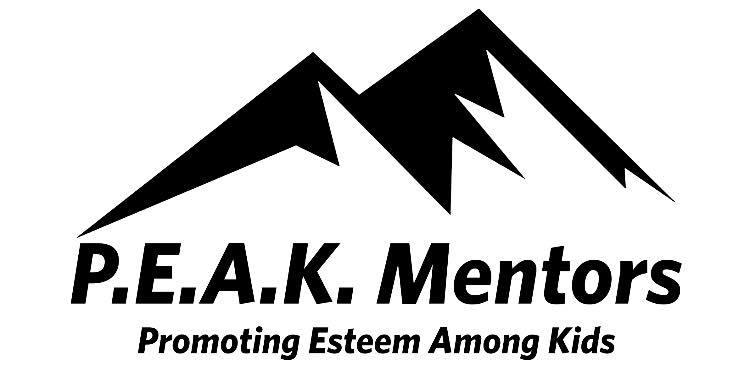 |
August Update
By Shannon Payne, PEAK Mentor Program Director
There are 46 million young people, aged 8-18, living in America. 16 million of them are growing up without a mentor. That's one out of every three young people who, outside of their family at home, don't have a trusted adult who they believe they can turn to for advice and guidance. Of those young people, 9 million face a variety of day-to-day challenges that put them at-risk for falling off track.
Mentoring creates meaningful connections that can positively impact the lives of both mentor and mentee. Those who receive mentorship are more likely to see improved academic, social, and economic prospects. Those who mentor are able to further build important leadership, management and creative skills, while giving back to their community.
That means that
EVERY mentorship matters.
If you are interested in becoming a PEAK Mentor and being a positive influence in a kid's life, please reach out via email, phone, text, or Facebook to Shannon Payne shannon@cartercountydrugprevention.org (423) 707-9207. Please refer kiddos that could benefit from our program via email or phone.
Every kid is one caring adult away from being a success story! |
|
|---|
|
|
|
|
This project is funded in part by the Tennessee Department of Mental Health and Substance Abuse Services. |
|
|---|
|
|
 | | | |
|  |
|
|
|
|
